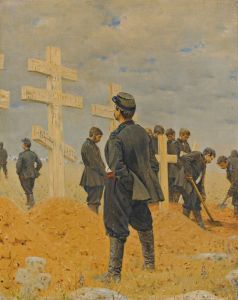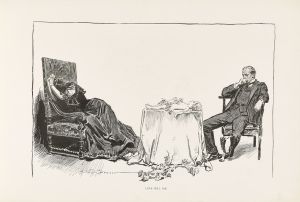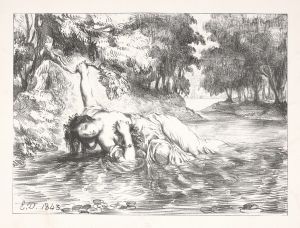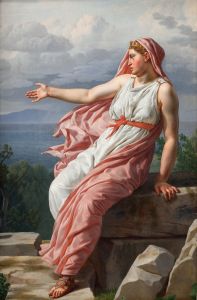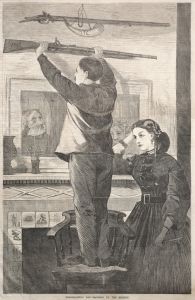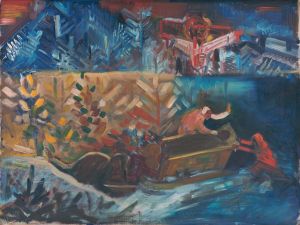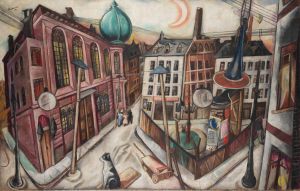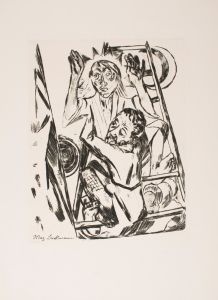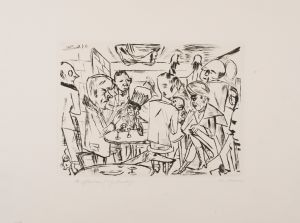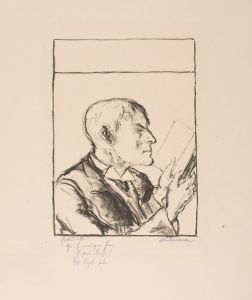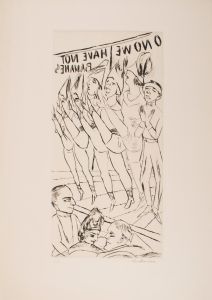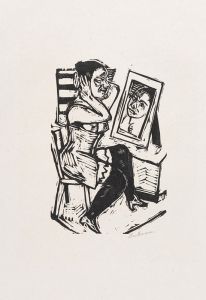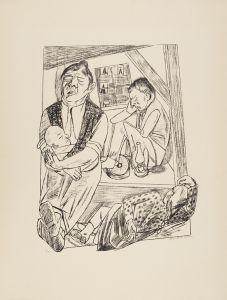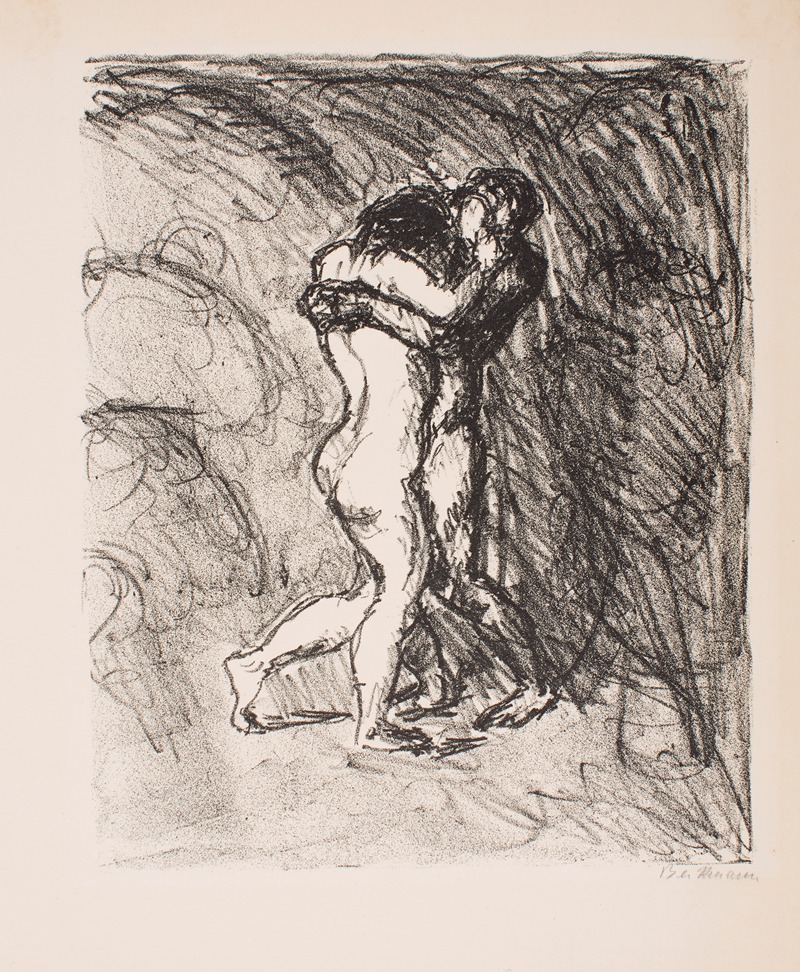
The Reunion, Plate 6 from the series ‘The Return of Eurydice, Three Cantos’
A hand-painted replica of Max Beckmann’s masterpiece The Reunion, Plate 6 from the series ‘The Return of Eurydice, Three Cantos’, meticulously crafted by professional artists to capture the true essence of the original. Each piece is created with museum-quality canvas and rare mineral pigments, carefully painted by experienced artists with delicate brushstrokes and rich, layered colors to perfectly recreate the texture of the original artwork. Unlike machine-printed reproductions, this hand-painted version brings the painting to life, infused with the artist’s emotions and skill in every stroke. Whether for personal collection or home decoration, it instantly elevates the artistic atmosphere of any space.
Max Beckmann was a prominent German painter, draftsman, printmaker, and writer, known for his unique style that combined elements of Expressionism, New Objectivity, and a personal form of modernism. One of his notable works is "The Reunion, Plate 6" from the series "The Return of Eurydice, Three Cantos." This series is part of Beckmann's exploration of mythological themes, a recurring subject in his oeuvre, which he often used to reflect on the human condition and the complexities of modern life.
"The Return of Eurydice, Three Cantos" is a series that delves into the ancient Greek myth of Orpheus and Eurydice. In this myth, Orpheus, a legendary musician, descends into the underworld to retrieve his beloved wife, Eurydice, who has died. Through the power of his music, he convinces Hades, the god of the underworld, to allow Eurydice to return to the living world. However, the condition is that Orpheus must not look back at Eurydice until they have both reached the surface. Tragically, Orpheus turns to look at her too soon, and she is lost to him forever.
Beckmann's interpretation of this myth is not merely a retelling but an exploration of its themes through his distinctive artistic lens. "The Reunion, Plate 6" captures a moment of emotional intensity, characteristic of Beckmann's work, which often features complex compositions and a rich interplay of figures and space. His use of bold lines and dramatic contrasts in light and shadow contribute to the emotional depth and tension in the piece.
Beckmann's art is known for its symbolic complexity and psychological depth, often reflecting his experiences and the turbulent times he lived through, including the two World Wars. His works frequently incorporate allegorical elements, and "The Reunion" is no exception, as it can be seen as a meditation on love, loss, and the human struggle against fate.
The series "The Return of Eurydice, Three Cantos" was created during a period when Beckmann was deeply engaged with printmaking, a medium that allowed him to experiment with form and narrative in ways distinct from his paintings. This series, like much of his print work, demonstrates his mastery of the medium and his ability to convey powerful stories through it.
Max Beckmann's works, including "The Reunion, Plate 6," continue to be studied and admired for their artistic innovation and their profound engagement with the themes of mythology, existential inquiry, and the human psyche. His contributions to modern art have cemented his place as one of the significant figures in 20th-century art, and his works remain influential to this day.





